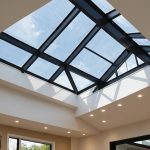Understanding the Types of Pool Slides
Navigating the myriad types of pool slides is fundamental for any buyer. With distinct slide categories, understanding each type’s characteristics will help you select the right one for your residential pool accessories.
Straight slides are traditional, offering a direct descent. They are often preferred for their straightforward design, ensuring a longer, faster ride. They require sufficient pool area due to their linear layout. Conversely, spiral slides integrate twists, providing a leisurely descent that maximises space. They cater well to users seeking a playful, winding experience. However, their design can result in water pooling in corners, affecting user comfort.
Also read : How Can You Transform Your Backyard into a Luxury Oasis?
Inflatable slides are a category spotlight, offering portability and ease of storage. While they’re fun and practical for temporary setups, their durability can be lesser compared to fixed structures. Consider the frequency of use when choosing an inflatable option.
When weighing the pros and cons of each type regarding user experience, flexibility, thrill, and maintenance stand out. Your choice should reflect the needs and space of your pool area while considering the maintenance each type demands. Understanding the diverse options enhances your ability to create the perfect aquatic playground tailored to your preferences.
Additional reading : How Can a Home Swimming Pool Enhance Your Home’s Value?
Assessing Material Durability
Understanding the material durability of pool slides is crucial for long-term satisfaction. Slides are frequently manufactured from plastic, fiberglass, or metal, each offering distinct durability characteristics. Plastic slides, while affordable and available in various colours and styles, can degrade over time due to UV exposure and pool chemicals. Effective UV-resistant coatings can help mitigate this issue.
Fiberglass, on the other hand, is renowned for its resilience and smooth finish, enhancing user experience. Although more expensive initially, its low maintenance needs can be cost-effective over time. Routine waxing can also preserve its appearance and function.
Metal slides offer unmatched strength but may require additional maintenance to avoid rust in wet environments. Regular inspections and application of anti-rust treatments are recommended to maintain their integrity.
UV exposure and water can significantly impact a slide’s longevity. Therefore, implementing proper maintenance tips is vital. Clean slides regularly to remove chlorine and debris, inspect for scratches or fading, and perform preventive maintenance. Employing proper care extends the life of your pool slide significantly, ensuring an engaging and safe aquatic environment for years to come. Integrating these practices helps to sustain the quality of your residential pool accessories.
Evaluating Safety Standards
Understanding pool slide safety is paramount when considering residential installations. In the UK, adherence to safety regulations ensures a safe swimming environment. Essential standards focus on ensuring the slide has non-slip surfaces to prevent accidents, especially in wet conditions. This feature, often achieved through textured materials or coatings, is critical for user safety, especially for children.
Determining the structural integrity of the slide is also crucial. A robust construction, compliant with safety regulations, instills confidence that the slide can withstand regular use and occasional weight variations. When evaluating potential options, ensure the slide meets the British Standard BS EN 1069-1:2017 for water slides, which dictates minimum requirements for leisure water slides.
Key safety features to seek include secure handrails, splash zones that cater to various speeds, and the appropriate water flow rate to ensure safe landing speeds. Regular checks and maintenance can aid in identifying wear or potential hazards early. Prioritising these factors can safeguard users, creating an enjoyable and secure pool environment.
Finally, always consider consumer reviews and industry feedback to ensure the slide models considered are both safe and reliable based on real-world usage.
Installation Tips and Considerations
Understanding the nuances of pool slide installation ensures a seamless addition to your aquatic space. Before diving into the project, determine the specific installation requirements pertinent to your chosen slide type. Whether you’re installing a straight, spiral, or inflatable model, each has unique demands.
For a successful installation, begin by preparing your site. Clear the pool area and decide on the best location considering both aesthetics and safety. Next, gather necessary tools and materials, paying attention to the appropriateness of anchoring systems for heavier slides. Legal compliance is equally important. Ensure you meet all key legal requirements and obtain permits as mandated by UK regulations. These may include structural assessments and safety certifications.
It’s also vital to consider pool slide integration with existing pool elements. Ensure compatibility in terms of space and style to maintain the overall design harmony. If opting for a DIY approach, consult installation manuals meticulously and seek expert advice when needed. For those less inclined, hiring professional installers ensures precision and compliance, safeguarding your investment and family fun. Keep these considerations in mind to ensure a successful pool slide installation.
Budgeting for Your Pool Slide
When planning for a pool slide, understanding the pricing variations is essential. In the UK, average costs can differ significantly based on the type of slide you choose. Straight slides often offer a budget-friendly option, reflecting their simpler design and installation processes. Spiral slides, incorporating intricate designs, are typically premium-priced due to their complexity. Inflatable slides, while cheaper initially, may incur higher costs in maintenance and replacement due to their material limitations.
Cost Factors
Key considerations include:
- Installation costs: Professional installations ensure compliance with safety standards but can increase overall expenditure.
- Maintenance requirements: Durable materials such as fiberglass may demand a higher upfront cost but offer reduced maintenance expenses over time.
- Insurance: Additional insurance for pool slides can safeguard against potential accidents, albeit increasing budgetary demands.
Tips for Budgeting
To manage costs effectively:
- Compare various financing options that ease large upfront payments.
- Look for seasonal deals and promotions from reputable retailers.
- Prioritize trusted brands, ensuring durability, which may reduce long-term expenses.
Considering these factors can help align your pool slide investment with your financial plans efficiently and safely.
Popular Retailers and Brands in the UK
When seeking pool slides in the UK, choosing from top retailers ensures both quality and satisfaction. Renowned retailers such as John Lewis and Argos specialise in offering comprehensive slide selections, catering to diverse needs and preferences in aquatic accessories.
Brand reputation plays a significant role when investing in a pool slide, with established names like Bestway and Intex leading the market in providing durable and innovative designs. Bestway, known for its inflatable collections, excels in portability and ease of use, making it ideal for families seeking temporary additions. Intex focuses on robust construction and exciting designs, perfect for long-term installations.
Customer satisfaction ratings reflect both product reliability and the effectiveness of warranty and support services offered by these brands. Opt for brands that provide extensive warranty options and responsive customer service to safeguard your purchase.
When selecting a pool slide, compare brand offerings, warranties, and customer support services. Investing in a well-regarded brand not only ensures high-quality products but also paves the way for a positive customer experience, allowing you to enjoy your residential pool to the fullest.
User Reviews and Feedback
Understanding pool slide reviews and customer experiences is vital for making an informed purchase decision.
Finding Reliable Reviews
To ensure reliability, consider reviews from verified purchases on major retailer websites or specialised forums. These platforms provide insights into real-world product comparisons, highlighting the pros and cons of each brand and model. Peer experiences can often reveal issues not immediately apparent in product descriptions.
Importance of User Experience
Evaluating user feedback is crucial, as it encapsulates both the enjoyment and any challenges faced by slide owners. Pay particular attention to comments about reliability, ease of installation, and material durability. This firsthand information can act as a reality check against marketing promises, helping to align expectations with actual performance.
Common Praises and Complaints
A frequent praise for many pool slides is their ability to enhance the overall pool experience, providing much fun and joy. Inflatable slides, while popular for their portability, often receive feedback regarding durability concerns. In contrast, fiberglass slides are praised for their sturdiness but may face critiques about cost and installation challenges. By thoroughly digesting reviews focused on these aspects, you can make a more educated choice suited to your needs.
Maintenance and Care for Pool Slides
To ensure the longevity of your pool slide, implementing conscientious maintenance and care tips is essential. Regular upkeep not only maximises your investment but also guarantees safety and enjoyment for all users.
Routine maintenance tasks include:
- Cleaning the slide with gentle soap and a soft cloth to remove chlorine and debris. This helps maintain a smooth, inviting surface free from irritants.
- Inspecting the surface for scratches or wear that may impact the ride. Promptly address damages to prevent worsening.
- Ensuring that metal components are rust-free by applying anti-rust treatments. This step is crucial given the constant exposure to moisture.
Seasonal changes pose unique challenges:
- Winter storage: If using an inflatable slide, thoroughly dry before storing to prevent mould. Consider disassembling slides where feasible to protect from harsh weather.
- Summer readiness: Check all bolts and screws, ensuring they are secure. Test the slide stability and water flow rate to confirm optimal performance.
Common issues such as fading due to UV exposure can be managed by applying UV-resistant coatings. Preventive steps enhance your slide’s durability, ensuring a safe and fun environment in your residential pool.




